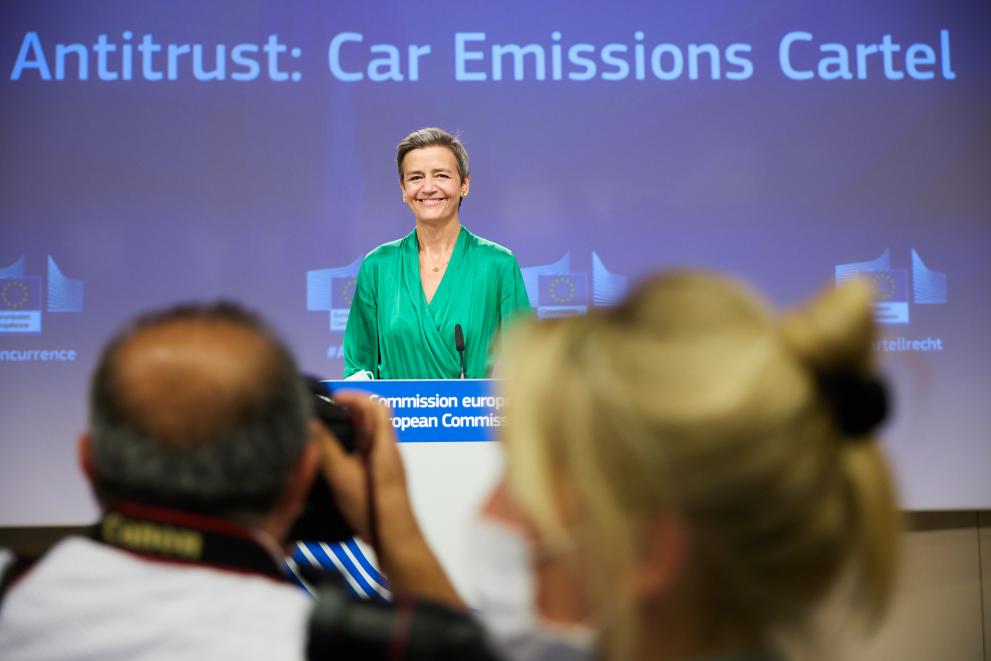
The final report and its accompanying staff working document identify potential competition concerns in the rapidly growing markets for IoT related products and services in the European Union.
Executive Vice-President Margrethe Vestager, in charge of competition policy said: “The consumer Internet of Things sector is increasingly becoming part of our everyday life. The final findings of our sector inquiry confirm concerns identified in the preliminary report. This is a market with high barriers to entry, few vertically integrated players and concerns about access to data, interoperability or exclusivity practices amongst others. We are confident that the sector inquiry's findings will provide guidance on the Commission's future enforcement and regulatory activity. We are also hopeful that it will stimulate companies to pro-actively address those concerns.”
The documents published today present the Commission's findings, taking account of comments received during the public consultation on the preliminary report of June 2021 and confirming the preliminary report's conclusions published in June 2021. Comments include input from stakeholders such as leading consumer IoT players, smart device manufacturers, creative content service providers, associations, or telecommunication operators.
Main findings of the sector inquiry
The main findings of the sector inquiry on the Consumer IoT cover the following points also covered in the preliminary report: (i) the characteristics of consumer IoT products and services, (ii) the features of competition in these markets, (iii) the main areas of potential concern raised by stakeholders in relation to the current functioning of consumer IoT markets, as well as to their future outlook.
Characteristics of consumer IoT products and services
The findings of the sector inquiry indicate that the consumer IoT is growing rapidly and becoming more and more a part of our everyday lives. In addition, there is a trend towards the increasing availability of voice assistants as user interfaces that enable interaction with other smart devices and consumer IoT services.
Features of competition in the markets for consumer IoT products and services
Most of the stakeholders who participated in the sector inquiry indicate that one of the main barrier to entry or expansion in the sector is the cost of technology investment, which is particularly high in the market for voice assistants. Another important barrier to entry is the competitive situation as a large number of stakeholders have reported difficulties in competing with vertically integrated companies that have built their own ecosystems within and beyond the consumer IoT sector (e.g. Google, Amazon or Apple). As these players provide the most common smart and mobile device operating systems as well as the leading voice assistants, they determine the processes for integrating smart devices and services in a consumer IoT system.
Main areas of potential concerns
Stakeholders raised concerns regarding the following areas:
- Certain exclusivity and tying practices in relation to voice assistants, as well as practices limiting the possibility to use different voice assistants on the same smart device.
- The position of voice assistants and smart device operating systems as intermediaries between users, on one side, and smart devices or consumer IoT services on the other side. This position, combined with their key role in the generation and collection of data, would allow them to control user relationships. In this context, stakeholders have also raised concerns in relation to the discoverability and visibility of their consumer IoT services.
- The extensive access to data, including information on user interactions with third-party smart devices and consumer IoT services by providers of voice assistants. Stakeholders consider that the access to and accumulation of large amounts of data allow voice assistant providers to improve their market position and to leverage more easily into adjacent markets.
- The lack of interoperability in the consumer IoT sector due to the prevalence of proprietary technology, leading at times to the creation of “de facto standards”. In particular, a few providers of voice assistants and operating systems are said to unilaterally control interoperability and integration processes and to be capable of limiting functionalities of third-party smart devices and consumer IoT services, compared to their own.
Follow-up to the sector inquiry
The information collected in the context of the sector inquiry on the consumer IoT will provide guidance to the Commission's future enforcement and regulatory activity. Any competition enforcement measure following the sector inquiry would have to be based on a case-by-case assessment. Furthermore, the conclusions deriving from the sector inquiry will inform the Commission's further work in implementing its digital strategy. In particular, the findings of this sector inquiry will also contribute to the ongoing legislative debate on the Commission's proposal for the Digital Markets Act.
Moreover, sector inquiries like this one may prompt companies to review their commercial practices. In this context, the Commission notes Amazon's recent revision of some of the business-to-business conditions applicable to its automatic and smart product reordering services.
Background
The consumer IoT sector inquiry was launched on 16 July 2020 as part of the Commission's digital strategy and following an announcement in the Commission's Communication on Shaping Europe's digital future. In June 2021, the Commission published the preliminary report setting out its initial findings. During the inquiry, the Commission has gathered information from over 200 companies of different sizes, operating in consumer IoT product and services markets and based across Europe, Asia and the US. Furthermore, these companies have shared with the Commission more than 1,000 agreements. The Commission also received 26 submissions from stakeholders during the public consultation on the Preliminary Report.
The final report can be found here, together with its accompanying staff working document.
For further background, please see the Q&A of the preliminary report and the sector inquiry website.
Details
- Publication date
- 20 January 2022
- Author
- Representation in Cyprus
